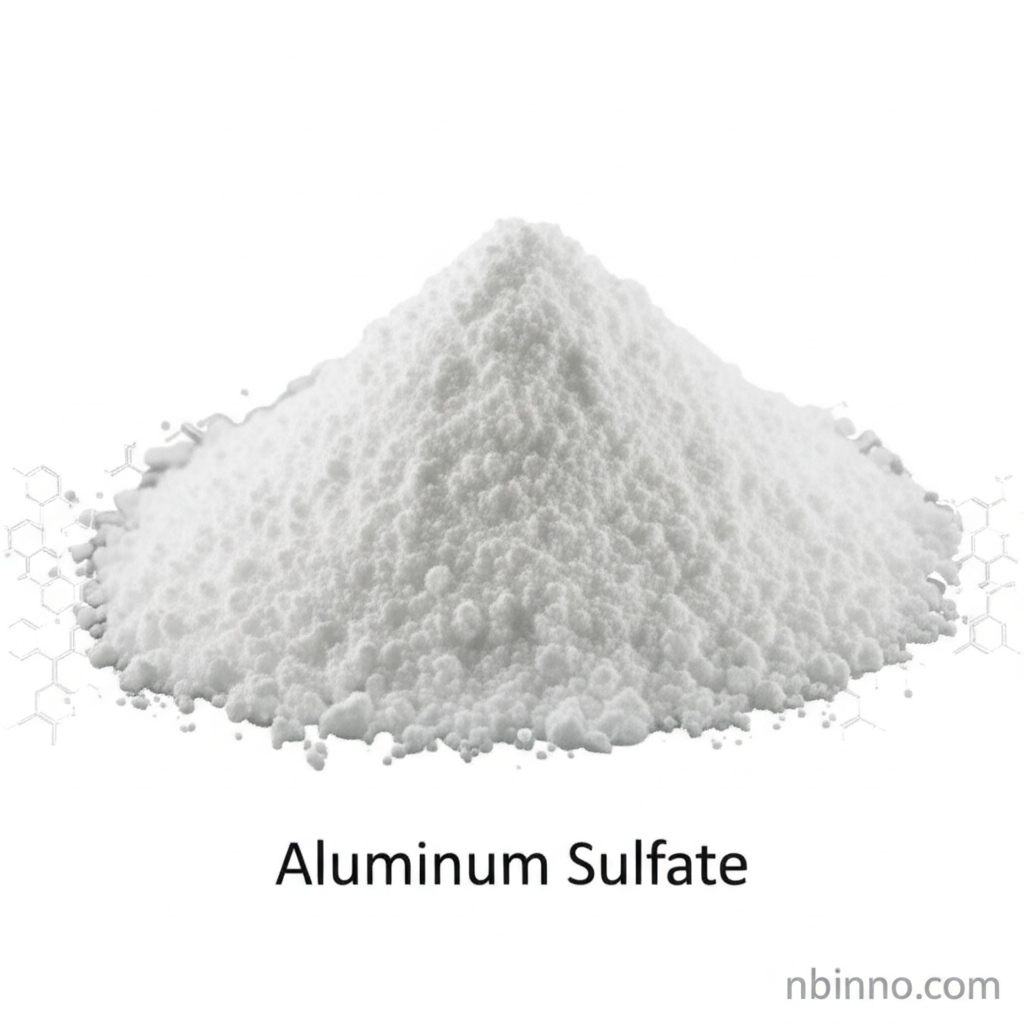Aluminum Sulfate: A Versatile Chemical for Water Treatment, Textile Dyeing, and Paper Manufacturing
Discover the essential properties and diverse applications of aluminum sulfate, a key industrial chemical.
Get a Quote & SampleProduct Core Value

Aluminum Sulfate
Aluminum sulfate, often known as alum, is a fundamental inorganic compound with a wide array of industrial applications. Its primary utility lies in its exceptional ability to act as a coagulant in water purification processes, effectively removing impurities and clarifying water for safe consumption and industrial use. Beyond water treatment, this versatile chemical plays a crucial role in the textile industry as a mordant, enhancing dye fixation for vibrant and lasting colors. In papermaking, it functions as a sizing agent, improving paper quality and ink receptivity. Furthermore, its acidic nature makes it valuable in gardening for adjusting soil pH levels, benefiting acid-loving plants.
- Learn about aluminum sulfate water treatment capabilities for cleaner industrial and potable water sources.
- Explore how aluminum sulfate textile dyeing processes benefit from its mordant properties, ensuring color longevity.
- Understand the importance of aluminum sulfate in paper manufacturing for enhanced paper quality and printability.
- Discover the benefits of aluminum sulfate soil acidity adjustments for specific plant growth needs in gardening.
Key Advantages
Water Clarity Enhancement
As a highly effective flocculant, aluminum sulfate binds suspended particles, leading to clearer water in treatment facilities, which is a critical aspect of what alum is used for in municipal water systems.
Vibrant Textile Colors
In textile dyeing, aluminum sulfate acts as a reliable mordant, helping dyes bond strongly to fibers, resulting in brighter and more durable colors, a key component in achieving desired shades.
Improved Paper Quality
Its application in paper manufacturing as a sizing agent contributes to better ink holdout and enhanced paper strength, improving the overall quality of the final product.
Key Applications
Water Purification
Utilized extensively in municipal and industrial water treatment plants as a primary coagulant for removing impurities and suspended solids.
Textile Dyeing & Printing
Serves as a crucial mordant, fixing dyes to fabric fibers for improved colorfastness and vibrancy in the textile industry.
Paper Manufacturing
Functions as a sizing agent, enhancing the quality, ink receptivity, and water resistance of paper products.
Gardening & Agriculture
Used to lower the pH of alkaline soils, creating a more favorable environment for acid-loving plants and improving soil conditions.
Related Technical Articles & Resources
Why Choose Us?
Leverage our expertise and state-of-the-art infrastructure to accelerate your journey from discovery to commercial success.
Global Experience
With 20 years of R&D, manufacturing, and sales experience, we proudly serve clients across 60 countries and regions worldwide.
Advanced Facilities
Our in-house R&D laboratory, pilot platform, and large-scale production workshop are equipped to meet the audit requirements of global customers.
Seamless Scalability
We facilitate a perfect transition from small-scale lab requirements (grams) to full commercialization (hundreds of tons).
